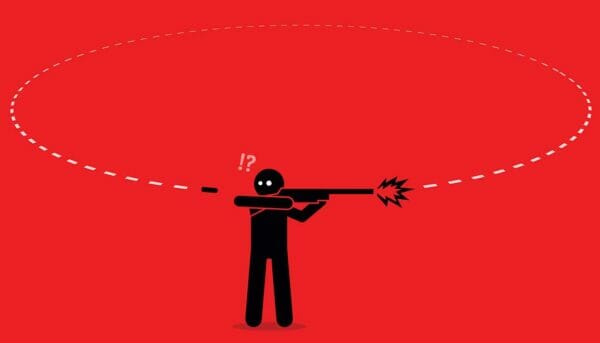
In recent events surrounding the AutoKeyCard prosecution case, Assistant United States Attorney (AUSA) Laura Cofer Taylor faced significant backlash for a motion she filed. The motion sought to silence journalists John Crump and Richard Hughes. However, after mounting opposition, it was subsequently withdrawn.
The initial motion had been an alarming request to suppress the voices of journalists reporting on the U.S. District Court for the Middle District of Florida case titled “United States of America v. Ervin and Hoover.” The core of this case revolves around the convictions of Ervin and Hoover, who, in our opinion, have been wrongly found guilty of “violating the National Firearms Act (NFA) of 1934 for selling machine guns and conspiracy.” Although this case has gained considerable attention due to its controversial nature, the move by AUSA Taylor to censor AmmoLand News journalists brought another layer of contention.
Lawyers representing the journalists, Crump & Hughes, did not stand idly by. They promptly filed an emergency challenge to Taylor’s request. Bolstering their stance, 17 prominent online video journalists came forth to support them via an amicus brief. But, while these events took shape, on August 11, 2023, the court heard the emergency filing from the two journalists. However, in what can be seen as a surprising move, the government withdrew its motion against Crump and Hughes.
Crump noted in a quote to Bearing Arms, “It seemed like the judge might not… [be leaning towards our way], I can’t say for sure. But the government decided that it was in their best interest to go ahead and withdraw the motion.” Furthermore, the withdrawal meant that the emergency appeal and the accompanying amicus brief were rendered moot.
Richard Hughes, aka “Flying Rich,” on the other hand, took issue with the references Taylor made in her filing. “So she improperly cited the law, whether it was by mistake or intentionally trying to mislead the court.” His insinuations question Taylor’s intentions, hinting at either incompetence or a potential attempt at misleading the court.
Both journalists expressed gratitude for the overwhelming support they received during this time.
Yet, this incident raises essential questions about the balance of power, freedom of the press, and the role of the government in potentially stifling these freedoms.
This episode also serves as a reminder that even in seemingly clear-cut legal situations, there can be underlying complexities. While Taylor’s motion may have been retracted, the implications of such a move still resonate. The case, which Hughes referred to as “an entire miscarriage of justice from the get-go,” is not just about Ervin and Hoover but about the larger issues at play – issues of justice, transparency, and freedom of the press.
In the wake of these events, we now wait for the sentencing of Ervin and Hoover, hoping for fairness and justice to prevail. However, this episode serves as a potent reminder of the fragility of press freedoms, even in a Republic with First Amendment rights, including Freedom of the Press, enshrined in the Constitution.
Read Related:
- AmmoLand News Journalist Faces Gag Effort by US Attorney
- Justin Ervin & Matthew Hoover (CRS Firearms) Found Guilty in Autokey Card Case
- Charge in Autokeycard Case Unconstitutional Under Second Amendment: Motion to Dismiss
- YouTube Creators File Court Brief in FREE Press Fight Over DOJ Gag Order
By Fred Riehl and AI tools. Note: Research behind this article was generated using AI technology and may contain some automated content aggregation and analysis.
